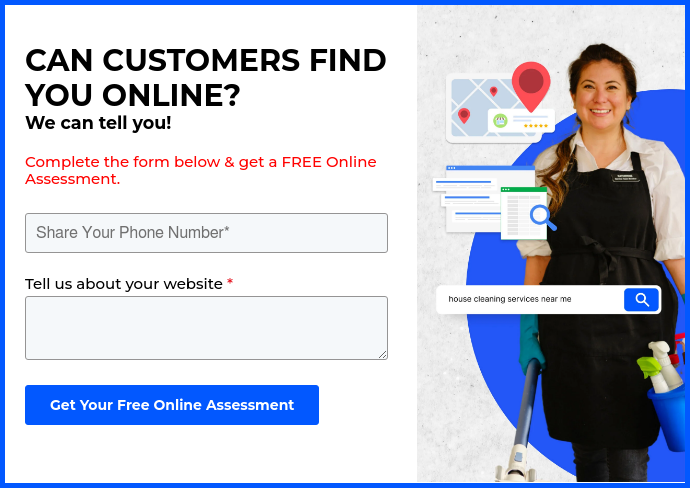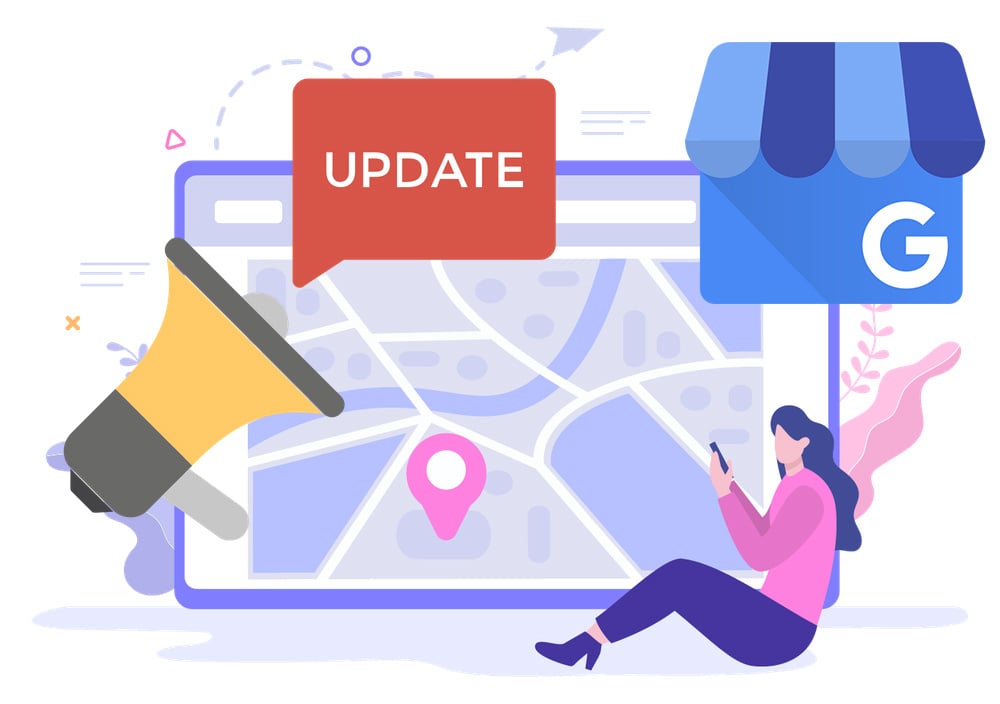A Closer Look at Service Businesses: Examples and Insights
Read on for more.

Introduction
What are examples of service businesses? If you're searching for a quick answer, service businesses include sectors like healthcare, finance, automotive services, and information technology. These businesses provide intangible goods that are focused on fulfilling the needs and desires of their customers through personalized interactions.
Service businesses are integral to the economy and our daily lives, providing essential services that ensure smooth personal and professional routines. Whether it's a local mechanic fixing your car, a marketing agency promoting your product, or a healthcare professional attending to your health, service businesses permeate every aspect of our society.
In this brief introduction, we will delve into the significance of service businesses and how understanding them can benefit small business owners, especially those in the home, commercial, or auto services industry. These entrepreneurs often juggle multiple roles and may find the digital aspect of expanding their reach particularly daunting. By focusing on service-centric models that resonate with local clientele, they can enhance customer interactions and foster growth without overwhelming their schedules or budgets.

What Defines a Service Business?
Service businesses are distinct in their offerings, primarily focusing on delivering intangible benefits rather than physical products. This section delves into what fundamentally characterizes these businesses: Intangibility, Customization, and Customer Interaction.
Intangibility
Unlike a product that you can touch or see, services are intangible. When you visit a lawyer, the service provided is the legal advice, which you cannot physically touch or store. This intangibility means that customers often base their purchase decisions on trust, reputation, and the service provider's perceived expertise.
Customization
Services are often tailored to meet the specific needs of each customer, which is known as Customization. For example, a personal trainer designs a unique fitness program for each client to suit their individual health needs and fitness goals. This customization is a key advantage of service businesses, allowing them to address the precise requirements of their clients, enhancing satisfaction and effectiveness.
Customer Interaction
Customer Interaction is crucial in service businesses. The quality of service is heavily dependent on the interaction between the provider and the customer. For instance, how a consultant engages with a client can significantly influence the outcome of the service. Effective communication, understanding customer needs, and delivering a personalized experience are all vital components of successful service interactions.
These three characteristics define the core of service businesses. They highlight the unique challenges and opportunities within the service industry, from the need for skilled and empathetic customer handling to the importance of building a strong reputation and trust. Understanding these aspects helps service businesses innovate and continuously improve their offerings to better meet the needs of their clients. We'll explore various Examples of Service Businesses Across Industries, showcasing the diversity and breadth of this sector.
Examples of Service Businesses Across Industries
Service businesses span a vast array of industries, each providing essential services tailored to the needs of individuals, businesses, and communities. Here's a closer look at some key sectors:
Home Services
One of the fastest-growing service sectors in the United States are home service business. These include home and residential property maintenance, such as house cleaning, power washing, pest control, fence services, deck builders, etc.
Commercial Services
While there is some overlap between home and commercial service businesses, most commercial service providers are required to carry extra liability insurance so that they can service non-residential properties, such as office parks, shopping centers, or campuses.
Construction Services
Similar to the two categories above, construction services primarily deal with home or building construction of heavy remodel work. These include builders, electricians, cement contractors, roofers, plumbers, or even solar panel installers.
Healthcare Services
Healthcare is a critical sector where professionals like doctors, nurses, and various healthcare providers offer medical treatments and care. These services are vital for maintaining public health. They range from hospitals providing emergency care and surgeries to clinics offering specialized treatments. The importance of healthcare services has been particularly highlighted during the COVID-19 pandemic, underscoring the need for robust healthcare systems.
Financial Services
This sector includes banks, accountants, and financial advisors. Financial services play a crucial role in managing money, investments, and the overall economic health of individuals and organizations. They help clients manage their finances efficiently, offering services like investment advice, tax planning, and retirement strategies. For businesses, financial services are indispensable in areas such as bookkeeping, financial reporting, and strategic financial planning.
Educational Services
The field of education is vast, including tutors, online courses, and training workshops. These services cater to a range of needs, from academic support to professional development. Online education, in particular, has seen a surge in popularity, providing accessible learning options for students worldwide. Educational services not only support traditional learning but also offer continuous professional development crucial for career advancement.
Technology Services
In our digital age, technology services are more important than ever. This sector includes IT support, software development, and cybersecurity. These services ensure that businesses can run smoothly and securely. With the increasing threat of cyber attacks, cybersecurity has become a top priority for companies of all sizes. Software development also plays a critical role in creating the digital tools necessary for businesses to operate efficiently and innovate.
Hospitality Services
The hospitality industry encompasses hotels, restaurants, and event planning services. These businesses are geared towards providing leisure and comfort to their clients. Whether it’s a business conference at a hotel, a family dinner at a restaurant, or a meticulously planned wedding event, the hospitality sector strives to deliver experiences that are not only enjoyable but also memorable. The success of these services heavily relies on customer satisfaction and often involves intricate planning and coordination.
Each of these industries demonstrates the broad spectrum and vital nature of service businesses. They illustrate how deeply service businesses are woven into the fabric of daily life and economic stability. As we continue to explore the dynamics of these industries, we'll delve into the Economic Impact of Service Businesses, examining how they contribute to job creation, GDP, and innovation within the economy.
The Economic Impact of Service Businesses
Service businesses are not just about providing solutions; they're also powerful engines that drive economic growth. Let's break down their impact in terms of job creation, GDP contribution, and innovation.
Job Creation
Service industries are among the largest employers globally. From healthcare to hospitality, these sectors create a myriad of jobs across various skill levels. For instance, the rise of home service businesses and technology services has opened up opportunities for professionals and part-time workers alike. These jobs aren't just numbers; they represent livelihoods and career paths for millions.
GDP Contribution
Service businesses contribute significantly to the Gross Domestic Product (GDP). As detailed in the research from trafft.com, sectors like healthcare, education, and technology are pivotal. They don't just generate revenue through direct services but also stimulate related industries such as pharmaceuticals, educational tech, and cybersecurity.
Innovation
Service businesses are at the forefront of innovation. They continuously evolve to meet changing consumer needs and incorporate new technologies. For example, app development and software services are constantly innovating to provide more efficient and personalized user experiences. This sector's adaptability not only leads to better services but also pushes the entire market forward by setting new standards and practices.
The economic impact of service businesses is profound and multifaceted. They not only support the economy through job creation and GDP growth but also propel innovation that affects all sectors of business. As we look to the future, the role of service businesses in economic sustainability and technological advancement will undoubtedly increase.
Key Differences Between Service and Product-Based Businesses
Understanding the core differences between service and product-based businesses is crucial for entrepreneurs and customers alike. The distinctions primarily lie in Customization, Delivery, and Customer Relationship. Let's take a closer look at each of these aspects.
Customization
Service businesses excel in customization. Unlike product-based businesses, where products are often mass-produced, services can be tailored to meet the specific needs of each customer. For instance, a financial advisor crafts unique investment plans based on individual financial goals and risk tolerance. This high level of personalization helps service businesses stand out and meet customer expectations more precisely.
Delivery
The delivery of services is fundamentally different from products. Services are performed, whereas products are manufactured and shipped. This difference significantly affects how customers interact with the business. For example, when you order a meal at a restaurant, the service includes not only the food but also the experience of dining, which is immediate and consumed as it's provided. In contrast, purchasing a kitchen appliance involves a tangible item that you continue to use over time. The immediacy and ephemeral nature of services make the delivery aspect crucial for customer satisfaction.
Customer Relationship
Service businesses often build stronger, more personal relationships with their customers compared to product-based businesses. Since services are inherently interactive, involving constant customer feedback and adjustment, the bond between the service provider and the customer can become a key differentiator. For instance, personal trainers develop close relationships with their clients to tailor fitness programs and motivate them effectively. This ongoing interaction helps in building loyalty and trust, which are essential for repeat business and referrals.
In summary, while both service and product-based businesses aim to fulfill customer needs, they differ significantly in their approach to customization, delivery, and customer relationships. Service businesses offer a more personalized, immediate, and interactive experience, which can lead to deeper customer connections and satisfaction. As we continue to explore the dynamics of these businesses, keep these differences in mind to better understand their operations and market strategies.
Emerging Trends in Service Businesses
The landscape of service businesses is constantly evolving with the integration of new technologies and changing consumer expectations. Let's dive into some of the most compelling trends that are shaping the future of this dynamic sector.
Remote Services
The rise of remote services has been accelerated by the global shift towards telecommuting. This trend is not just confined to tech companies but spans across various sectors including healthcare, education, and consulting. Remote services allow businesses to reach a broader audience while reducing overhead costs associated with physical locations.
Sustainable Practices
Environmental consciousness is no longer optional. Service businesses are increasingly adopting sustainable practices to meet consumer demand for eco-friendly options. This includes everything from using biodegradable products in cleaning services to implementing energy-efficient systems in data centers.
Personalization
In a digital age where consumer data is plentiful, personalization has become a key differentiator in service offerings. Businesses are leveraging AI and analytics to tailor their services to meet the unique preferences and needs of each customer. This not only enhances customer satisfaction but also increases loyalty and retention.
Mobile Services
With the ubiquity of smartphones, mobile services have seen a significant surge. Businesses are creating mobile apps to offer convenient service options right at their customers' fingertips. Whether it's booking a ride, ordering food, or managing banking transactions, mobile services are making it easier for consumers to interact with businesses on the go.
Subscription Models
Subscription-based models are transforming traditional service offerings. From software-as-a-service (SaaS) to lifestyle services like meal kits and fitness classes, subscriptions provide a steady revenue stream while offering customers cost-effective, continuous value.
Generative AI
Generative AI is revolutionizing service industries by automating complex tasks that once required human intervention. This technology is being used for everything from generating legal documents to designing personalized marketing campaigns, significantly enhancing efficiency and scaling capabilities for service businesses.
These trends are not just passing fads but are integral to the strategic development of service businesses. They offer exciting opportunities for innovation and growth in a competitive marketplace. As businesses continue to adapt and evolve, these trends will play a pivotal role in shaping the future of the service industry.
Frequently Asked Questions about Service Businesses
What are examples of service businesses?
Service businesses are all around us, providing essential services that we rely on daily. Here are some common examples:
- Healthcare Services: Includes doctors, nurses, and healthcare facilities that provide medical care.
- Financial Services: Banks, accountants, and financial advisors help manage money and provide financial advice.
- Educational Services: Tutors, online courses, and training workshops that offer learning and development opportunities.
- Technology Services: IT support, software development, and cybersecurity services that keep our digital lives running smoothly.
- Hospitality Services: Hotels, restaurants, and event planning services that cater to our leisure and travel needs.
These businesses focus on delivering intangible goods like knowledge, experiences, and interactions, rather than physical products.
How do service businesses differ from product-based businesses?
Service businesses provide intangible services, which means there's often a higher level of customization and customer interaction compared to product-based businesses. Here are the key differences:
- Intangibility: Services are not physical and cannot be owned. For example, you can buy and own a computer (product), but you cannot own a software installation service—it is experienced.
- Customization: Services are often tailored to meet the specific needs of a client. For instance, a marketing agency can customize its strategies based on the unique requirements of each business it serves.
- Customer Relationship: Service businesses typically involve significant customer interaction, which is crucial for service delivery and satisfaction. This interaction helps in building stronger, long-term relationships with customers.
These differences require service businesses to focus heavily on customer relationships and satisfaction to succeed.
What are the latest trends in service businesses?
The service industry is continually evolving, with new trends emerging that reshape how services are delivered and experienced. Some of the most prominent trends include:
- Remote Services: More services are being offered remotely, thanks to advancements in technology. This includes virtual consultations, online classes, and remote tech support.
- Sustainable Practices: There is a growing emphasis on sustainability within service industries. Companies are adopting eco-friendly practices and promoting sustainability to attract environmentally conscious consumers.
- Personalization: With data analytics, businesses can offer highly personalized services tailored to individual customer preferences and behaviors.
- Mobile Services: The rise of smartphones has led to an increase in mobile-oriented services, from mobile banking to on-demand delivery services.
- Subscription Models: Many service businesses are shifting to subscription models, providing ongoing services for a regular fee, which ensures predictable revenue and customer retention.
- Generative AI: Artificial intelligence is being used to automate and enhance services, from chatbots in customer service to AI-driven analytics for personalized service offerings.
These trends highlight the dynamic nature of the service industry and its quick adaptation to new technologies and changing consumer expectations.
As we look to the future, these trends will likely continue to influence how service businesses operate and engage with their customers, offering exciting opportunities for innovation and growth in this vital sector.
Conclusion
As we reflect on the dynamic landscape of service businesses, it's clear that the path to success hinges on innovative growth strategies, unwavering commitment to customer satisfaction, and leveraging powerful platforms like GoSite.
Growth Strategies
For service businesses aiming to thrive, adopting forward-thinking growth strategies is essential. This involves embracing digital transformation to streamline operations and enhance service delivery. By integrating advanced technologies such as cloud computing and AI, businesses can improve efficiency and adapt to customer needs more swiftly. Moreover, expanding into new markets or adding complementary services can capture additional customer segments and generate new revenue streams.
Customer Satisfaction
At the heart of every successful service business is exceptional customer satisfaction. This isn't just about meeting expectations but exceeding them consistently. It involves understanding deep customer needs through feedback and direct engagement, then using this insight to refine services. Personalization plays a key role here—tailoring services to individual customer preferences can create memorable experiences and foster loyalty.
Leveraging GoSite
Having a robust online presence is non-negotiable for service businesses aiming to grow and retain their customer base. GoSite offers a comprehensive suite of tools designed to enhance online visibility and streamline customer interactions. From easy-to-use website builders to seamless booking systems and effective local SEO strategies, GoSite empowers businesses to connect with their customers effectively and efficiently. By embracing such a platform, service businesses can ensure they not only survive but thrive in the competitive digital marketplace.
In conclusion, the future of service businesses looks bright with ample opportunities for growth and innovation. By focusing on strategic expansion, prioritizing customer satisfaction, and harnessing the capabilities of platforms like GoSite, service businesses can achieve sustained success and build a loyal customer base. Let's move forward with these strategies and watch our businesses reach new heights of success.
%20(1)%20(1).png?width=340&name=Group%2012%20(2)%20(1)%20(1).png)



